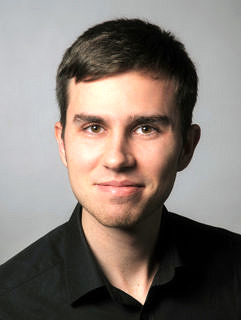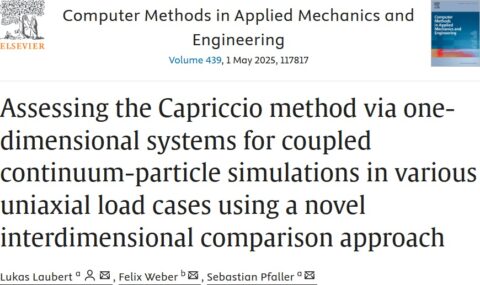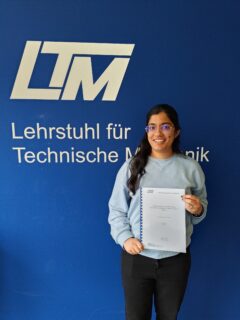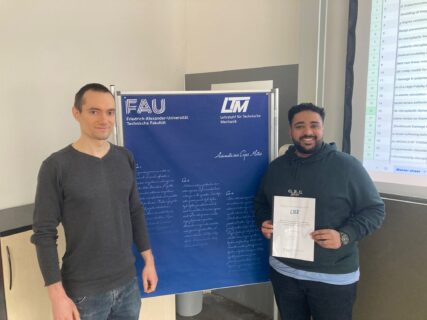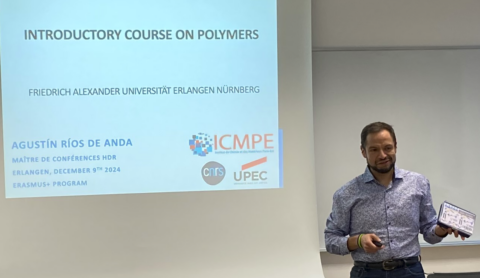home
The Capriccio group focuses on multiscale simulations of polymers and develops the Capriccio method, which implements a partitioned-domain coupling between a continuum and particle-based regions. Employing this novel technique and considering scale-bridging approaches of other groups, our particular interest is integrating processes at the atomistic and molecular scale into typical engineering scales. To this end, we investigate how molecular processes and macroscopic properties are linked to each other and how this knowledge can improve the performance of materials and structures.
After being a member for more than 7 years, Maximilian Ries is leaving the Capriccio group to build up a research group of his own. On that note, a short retrospective of his time with us is only appropriate:
Max started his doctoral project back in early 2018 and has been a very active member wi...
We are pleased to announce the publication of "Assessing the Capriccio method via one-dimensional systems for coupled continuum-particle simulations in various uniaxial load cases using a novel interdimensional comparison approach" in Computational Methods in Applied Mechanics and Engineering.
ht...
We congratulate Aditi Sharma, who has successfully completed her programming project with the submission of her report on the subject "Implementation of a sophisticated viscoelastic-viscoplastic material model in AceGen." Her work focuses on translating a complex viscoelastic-viscoplastic material m...
We congratulate Terrence Pereira, who successfully finished his seminar with the submission of his seminar report and by giving a presentation on the subject "Review of state-of-the-art continuum mechanical material models that consider multiple physical phenomena". In his work, Terrence tackles ess...
We had the great pleasure to welcome Prof. Agustín Ríos from ICMPE (Institut de Chimie et des Matériaux Paris-Est) within the ERASMUS+ programme. Agustín Ríos gave a lecture series on polymers with particular focus on the relation between the chemistry of these materials and their properties relevan...
It is a great pleasure to welcome Eva Richter to the Capriccio team!
Eva will work on her doctoral project as member of the third cohort of the research training group 2423 "Fracture across Scales" (FRASCAL). She is going to continue her exceptionally insightful work on fracture of thermoplastics...


